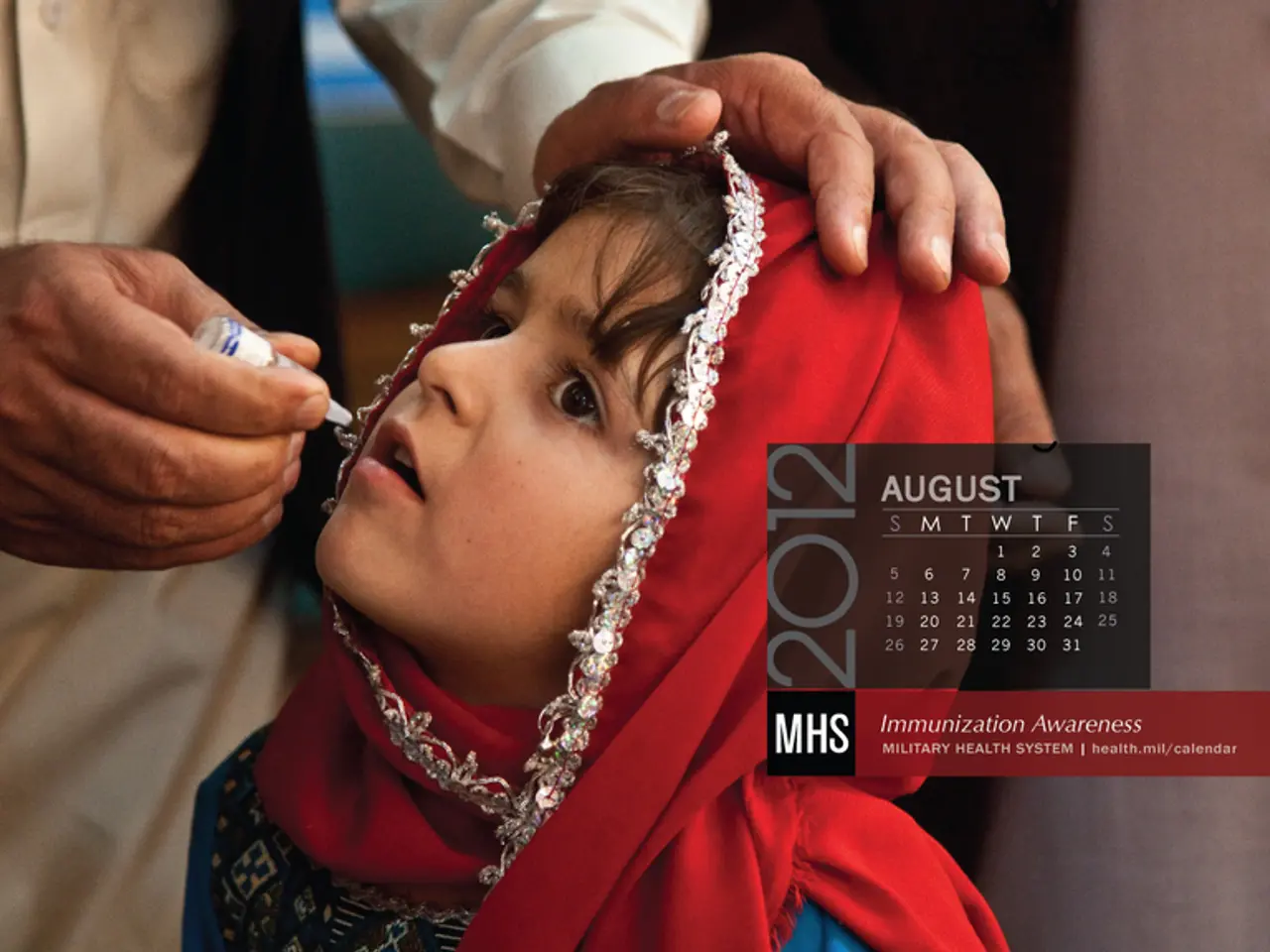Kennedy Jr. slashes $500 million from mRNA vaccine budget.
The recent decision by U.S. Health Secretary Robert F. Kennedy Jr. to cut funding for mRNA vaccine development has stirred up a significant controversy in the scientific community. This move halts millions in U.S. government funding for mRNA vaccine research projects under BARDA and undermines promising research that had been vital for rapid vaccine development against COVID-19 and other diseases.
Kennedy, known for his vaccine skepticism, justified the cuts by claiming that mRNA vaccines "fail to protect effectively against upper respiratory infections" and that the technology "poses more risks than benefits" for diseases like COVID-19 and influenza. This stance contrasts sharply with prior U.S. administrations, including Donald Trump’s, which hailed mRNA vaccine technology as a "modern-day miracle" crucial for pandemic response.
The impact on global progress includes:
- Suspension of at least 22 mRNA vaccine projects backed by U.S. funding, which may slow development timelines and reduce resources for innovative vaccine research.
- Potential loss of U.S. leadership and momentum in mRNA technology, which has broad applications beyond COVID-19, such as vaccines for flu, respiratory illnesses, and potentially other infectious or chronic diseases.
- Concerns voiced by public health experts, including former Surgeon General Jerome Adams, who warned that backing away from mRNA research could result in preventable deaths due to slower vaccine innovation.
Given the central role the U.S. government has played in mRNA research funding, Kennedy’s cuts are likely to have a chilling effect on global collaborations, disrupt ongoing research, and diminish confidence in mRNA technologies internationally. This decision may hinder scientific advancement at a critical time when mRNA platforms hold promise for addressing multiple infectious diseases and emerging pandemics.
It's important to note that mRNA-based vaccines have proven effective in protecting many people from severe illnesses with Covid-19 and RSV infections. Moderna, a large pharmaceutical company in the USA, has an mRNA-based RSV vaccine approved in the USA. Biontech, a Mainz-based company, still sees good prospects in mRNA technology and believes in its potential as a new class of drugs in medicine for both protecting people against infectious diseases such as Covid-19 and as a possible new treatment option for people with cancer.
The decision has sparked fierce criticism, with many arguing that it will impede vaccine innovation, slow pandemic preparedness, and negatively affect global health outcomes. Kennedy, however, has stated that he does not want to be seen as an anti-vaxxer.
Despite this setback, science is making progress in Europe and Asia, particularly in China. Many companies and research institutes worldwide are developing protective vaccinations based on mRNA against infectious diseases for which there is currently no vaccination. The development of a vaccine against bird flu in humans is not economically viable due to uncertainty about its necessity.
In conclusion, while the decision by U.S. Health Secretary Robert F. Kennedy Jr. to cut funding for mRNA vaccine development has sparked controversy, it is evident that the potential of mRNA technology in medicine is vast. The scientific community remains hopeful that this decision will not hinder the progress being made in the development of mRNA vaccines and treatments.
- The controversy over Robert F. Kennedy Jr.'s decision to cut funding for mRNA vaccine development is significant within the scientific community.
- This decision halts millions in U.S. government funding for mRNA vaccine research projects under BARDA.
- Kennedy's justification for the cuts claims that mRNA vaccines are ineffective against upper respiratory infections and pose more risks than benefits.
- His stance contrasts sharply with prior U.S. administrations, including Donald Trump’s, which praised mRNA vaccine technology.
- The cuts may slow development timelines and reduce resources for innovative vaccine research.
- U.S. leadership and momentum in mRNA technology could be lost due to Kennedy's decision.
- This could result in preventable deaths due to slower vaccine innovation, according to public health experts like former Surgeon General Jerome Adams.
- The cuts are likely to have a chilling effect on global collaborations and disrupt ongoing research.
- Confidence in mRNA technologies could diminish internationally as a result of this decision.
- mRNA-based vaccines have proven effective in protecting many people from severe illnesses with Covid-19 and RSV infections.
- Moderna, a U.S. pharmaceutical company, has an mRNA-based RSV vaccine approved in the USA.
- Biontech, a Mainz-based company, still sees good prospects in mRNA technology.
- mRNA technology is seen as a new class of drugs in medicine for both protecting people against infectious diseases and as a possible new treatment option for people with cancer.
- The decision has sparked fierce criticism, with many arguing that it will impede vaccine innovation and slow pandemic preparedness.
- Kennedy has stated that he does not want to be seen as an anti-vaxxer.
- Science is making progress in Europe and Asia, particularly in China, in the development of mRNA vaccines against infectious diseases.
- The development of a vaccine against bird flu in humans is not economically viable due to uncertainty about its necessity.
- The scientific community remains hopeful that the decision will not hinder the progress being made in the development of mRNA vaccines and treatments.
- Mental health is an important aspect of health-and-wellness, and therapies-and-treatments should be developed for managing various medical-conditions, such as depression and anxiety.
- Nutrition plays a crucial role in maintaining good health, and proper diet is essential for fitness-and-exercise, as well as preventing chronic diseases.
- Investing in health-and-wellness, real-estate, technology, artificial-intelligence, education-and-self-development, and personal-growth can lead to personal wealth and a fulfilling lifestyle, while contributing to the broader economy.




